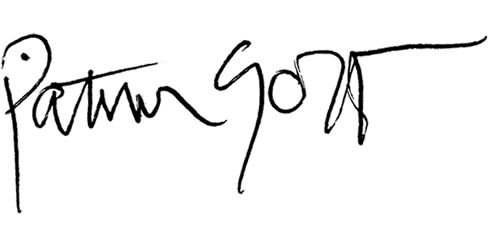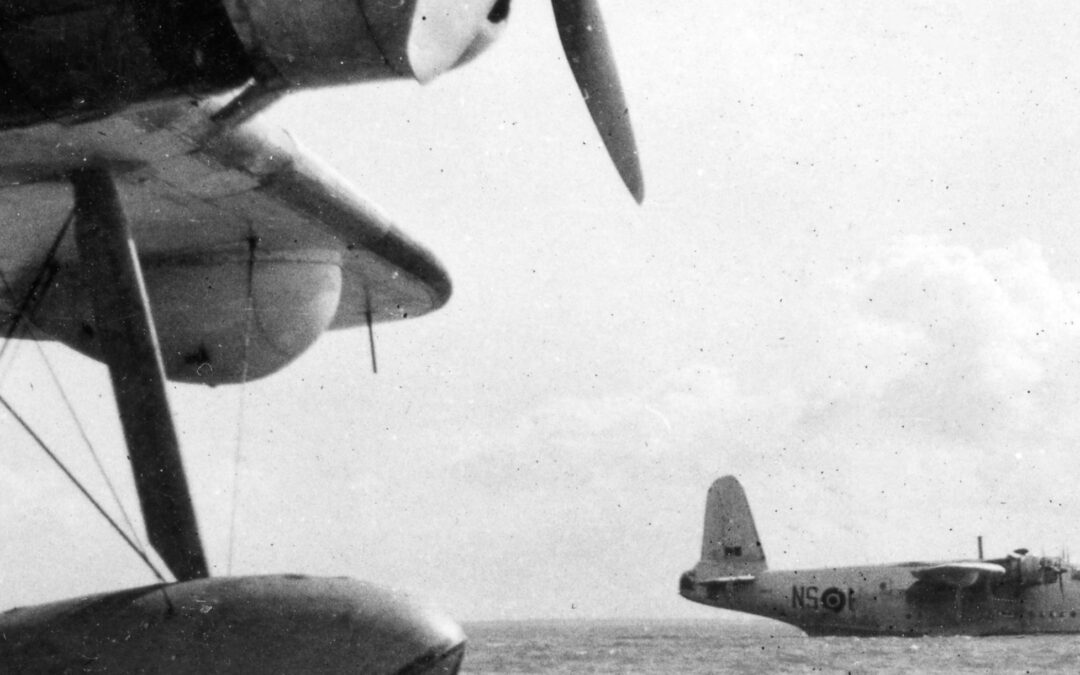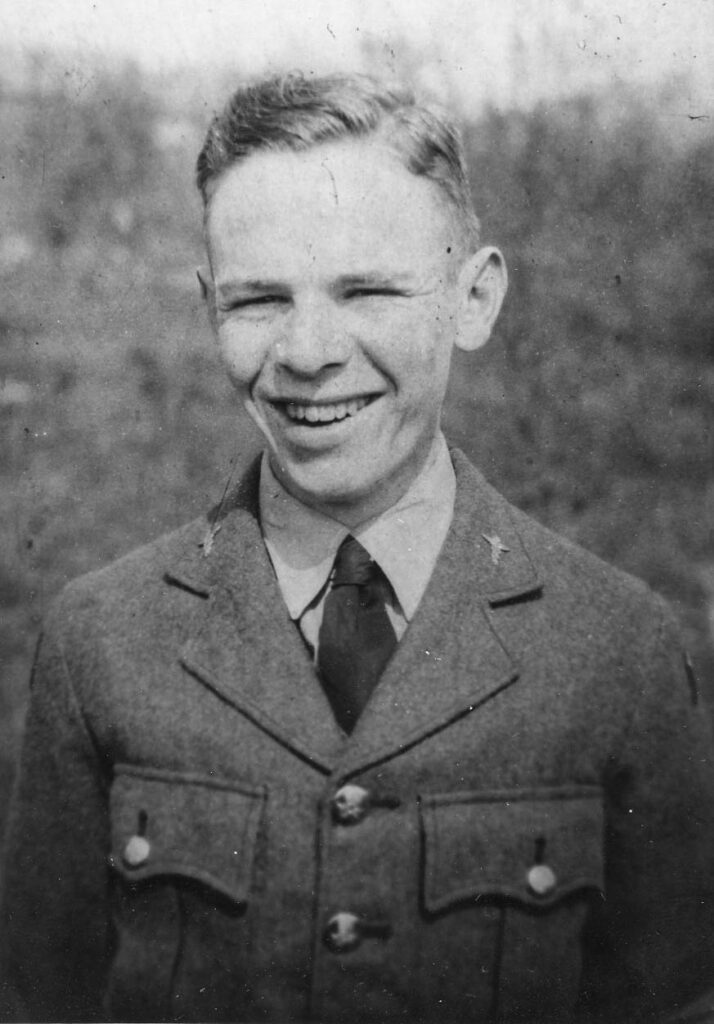Just ‘dad’ to Patrick, Jenny and Robert (in descending order). Husband to Dorothy – also known as Dottie. There are earlier generations of course but this is his story, not theirs. First though a caveat. Dad like to relate experiences from the past and as with many memories, he merged events that happened to his ‘pals’ with his own experiences. So much so that when I took him to the reunion of his Lancaster crew, he asked me not to say what he had told me of his war as he had embellished some of it. I didn’t need him to embellish anything as it would not change my love and respect for him. He was, and remains, a hero to me.
I hope at the end of this memoire he will remain a hero to you. He lived through difficult times, times that make our grumbles about inflation etc. seem totally insignificant compared to the Great Depression he was born into and the world war he endured. Mum of course was the product of the same experiences, and she too served her country and endured bombings and missile strikes (a V2 struck Tottenham Court Road as she left the nearby YWCA). But this is dad’s story, and I need to do more research to tell you more of mum.
So, my dad, a grandad or great grandad, depending on which generation you are, you who may be reading this, was born to a damaged veteran of World War 1, born on a farm in North Wales, outside Mold in Flintshire, that is today under a concrete works. Dad and I were chased away by security when we went to visit but he thought the house was still there, being used as offices. It is a beautiful part of Wales, and he was proud of his Welsh heritage.
He talked a little of his time as a child on the farm. Of harnessing the pony to the trap to take the milk churns to the railway station, telling of how the horse delighted in standing on his child’s foot, pinning him in place until his dad rescued him. This was a common job for young farm lads before they left for school in the morning, and Mums brother Reg told similar tales of his childhood in Devon – indeed they are in a small book of which I have a copy somewhere, and which is also kept in the Devon library’s collection.
The trap was a light two wheeled carriage, referred to as a gig, and dad always referred to glasses as ‘gig lamps’, especially the round NHS glasses we wore as kids. Working the farm dad was brought up speaking Welsh as his first language. Nowadays we look at racism as being about coloured immigrants but in the 1920’s it was a lingering racism against the non-English home nations, characterised by the “Taffy was a Welshman” traditional nursery rhyme. It had its origins in Celtic mythology and culture. The rhyme dates to the late 18th century England and used to be a very popular anti-Welsh song sung. The name Taffy derives from and it is related to the “Taff” river running through Cardiff.
Taffy was a Welshman, Taffy was a thief;
Taffy came to my house and stole a leg of beef;
I went to Taffy’s house, Taffy wasn’t in;
I jumped upon his Sunday hat and poked it with a pin.
Taffy was a Welshman, Taffy was a sham;
Taffy came to my house and stole a leg of lamb;
I went to Taffy’s house, Taffy was away,
I stuffed his socks with sawdust and filled his shoes with clay.
Taffy was a Welshman, Taffy was a cheat,
Taffy came to my house, and stole a piece of meat;
I went to Taffy’s house, Taffy was not there,
I hung his coat and trousers to roast before a fire.
Nothing new about racial prejudice.
When dad went to school he was taught in English and was only allowed to use English. Learning in this way is called ‘immersion teaching’ these days. It was reinforced by a process known as being put ‘on the slate’. If you used a Welsh word instead of the ‘correct’ English a slate would be placed around your neck (in those days learning to write was done on slates not paper). The child wearing the slate would pass it on to the next one to make a similar mistake and at the end of the day the child wearing the slate would be thrashed.
Dad as a youngster went to church. Christianity was a strong influence and laid the foundations of today’s society which largely spurns religion whilst not recognising many of the values we live by stem from its teaching. The religion has always been stronger in Wales too. He was a chorister in Chester cathedral choir for a while (I followed in the RAF church mainly because I was paid 6 pence for each service I sang in, but once singing in Guildford cathedral). Apparently, dad left the Cathedral choir in disgrace when he allowed his pet mouse to escape and run along the back of the choir stalls…
Dad was bright and at 14 was offered the opportunity of a scholarship to Grammar school. However most people started work at 14, and the farm suffered a series of rick fires and from the recession. Great grandad who owned the farm, killed himself driving his ‘roadster’ head on into a council steamroller, so grandad, who had apparently been gassed in WW1, had to make the farm bankrupt as he wasn’t fit enough to do all the work. He took a job in the Wirral as a pig man for the local Cooperative Society, and dad had to go out to work as the family needed his earnings. Grandad later described working as a crane operator in Cammell Lairds during WW2, and once mentioned seeing a burning Dornier shot down into the Mersey. They lived in a council house in Bromborough.
Dad had a job as a lab technician for Bowaters paper company by the ship canal . Seeing the ‘clouds of war’ gathering he enlisted in the Territorial Army as a private in the Royal Army Medical Corps. When preparations for war got underway seriously he was discharged from the Army into the RAF on the 8th of January 1939 as a medical orderly. His RAF number was 630366 and he was to serve until 1972.
I learned a little of his childhood when driving him around on a tour of his childhood haunts when he was dying of cancer. He and his brother Geoffrey sounded like neighbourhood nuisances. They would prank neighbours by tying door handles together on houses across the road from each other, then knock on the doors and watching the tug of war that took place as each tried to tug their door open against the pull of the other. Dad told me they once played on a parked steam roller, and pretended to be drivers until inadvertently letting off the brake and then jumping off as, out of control, it rumbled away down the hill…
Geoff too joined up and was an Army gunner, but his is another story. Cousin Irene (the first girl I fell in love with when I was 12 – she had a bicycle) still living in Liverpool knows more than me of her dad’s life. Her dad once invited me for a drink at the Sunlight Club. Visions of scantily clad long legged dancers came before my eyes, only to vanish as we entered the weed surrounded prefab that served as a club for workers at the Sunlight Soap factory… Geoff had a delightfully droll sense of humour. He once told me he served on a 40mm Bofors antiaircraft gun as part of the ring of defences on the South Downs intended to protect against V1 missiles. Chided by an officer for missing the target, he adjusted their sights and was on the gun when another missile came over. They opened fire and it blew up spectacularly right above them. The officer was injured by shrapnel and as Geoff said, that was why the sights were slightly off… Another of those embellished stories I suspect…



I though Taffy was just the English way of saying Dafydd.